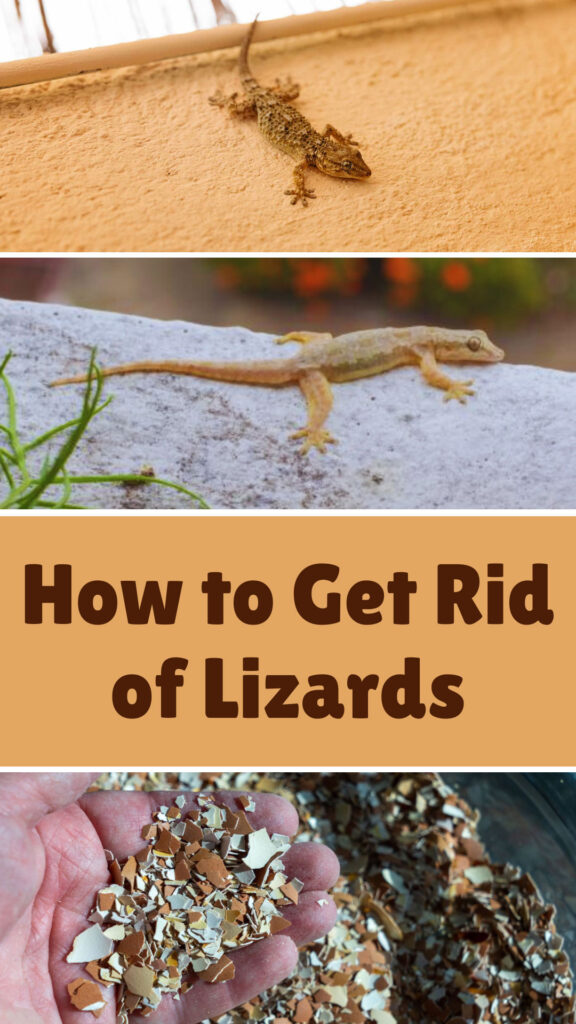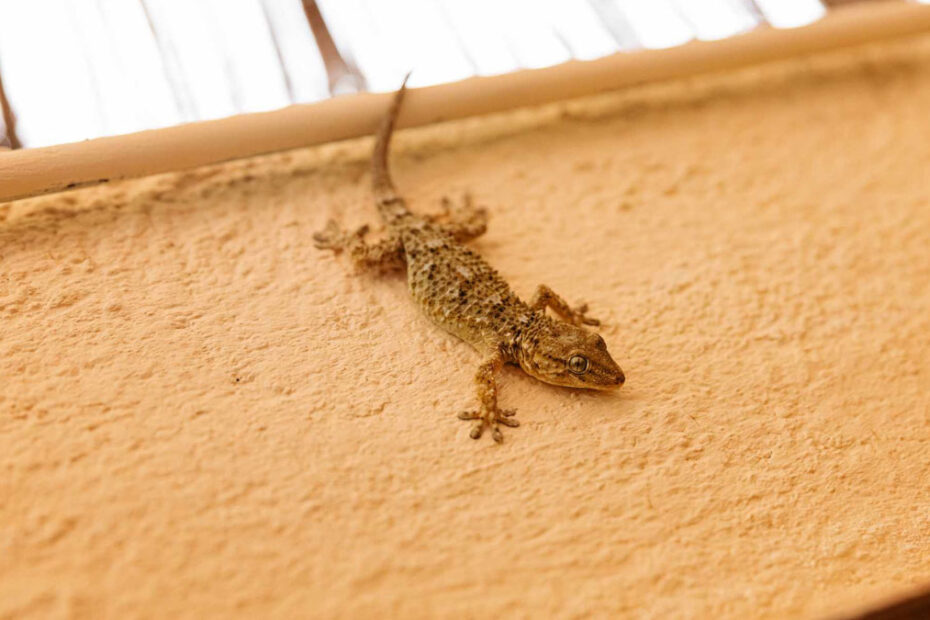Lizards might be fascinating creatures in the wild, but when they invade your home, they quickly become unwelcome guests. These small reptiles can scurry across walls and floors, making you feel uneasy and disrupting your peace. If you’re tired of these uninvited visitors, it’s time to take action and reclaim your space.
Getting rid of lizards doesn’t have to be a challenging job. With a few practical tips and natural remedies, you can effectively deter these critters and keep your home lizard-free. Let’s jump into simple yet effective strategies to help you bid farewell to these pesky reptiles once and for all.
Key Takeaways
- Understand Lizard Behavior: Lizards enter homes seeking food, warmth, and shelter. Recognizing common species and why they invade helps in formulating effective strategies.
- Preventive Measures: Maintain cleanliness, store food properly, and seal potential entry points like cracks and gaps around windows and doors to keep lizards out.
- Natural Remedies: Use essential oils, homemade sprays, and plants like peppermint, eucalyptus, and garlic to deter lizards naturally and economically.
- Chemical Solutions: For persistent invasions, utilize commercial sprays designed to repel or kill lizards and consider professional pest control services for comprehensive management.
- Safe Traps and Devices: Implement sticky traps and electronic repellents to capture or drive away lizards without harming them. Regularly check traps and ensure electronic devices are operational.

Understanding Lizards
Lizards often find their way into homes, seeking shelter and food. Knowing more about their nature helps you effectively manage them.
Common Species Found in Homes
Certain lizard species frequently invade homes. Recognizing them can guide you in dealing with them correctly.
- House Gecko: Small, light-colored lizards that are often seen around lights as they hunt for insects.
- Western Fence Lizard: Found in the western United States, they are slightly larger and usually have rough, spiny skin.
- Green Anole: Known for their bright green color and dewlap, commonly found in the southeastern United States.
Why Lizards Enter Homes
Understanding why lizards come into your home helps you take preventive measures.
- Food Supply: Lizards enter homes mainly seeking insects, their primary food source.
- Warmth: They seek warm environments, especially during colder months.
- Shelter: Cracks and crevices provide ideal hiding places for lizards to feel safe.
By recognizing the reasons behind their presence, you can better carry out strategies to keep them out.
Preventive Measures
Preventing lizards from entering your home involves adopting cleanliness practices and securing potential entry points. These measures are simple but effective in keeping lizards at bay.
Keeping Your Home Clean
Maintaining cleanliness in your home can significantly reduce the attraction of lizards. Lizards mainly follow insects, so by addressing the insect problem, you remove their food source.
Key Points:
- Remove Food Crumbs: Keep kitchen counters and floors free of crumbs, as they attract insects such as ants and cockroaches.
- Store Food Properly: Use airtight containers for storing food items to prevent insect infestations.
- Dispose of Garbage Regularly: Empty trash bins frequently to avoid the buildup of waste that can draw insects.
- Clean Under Appliances: Regularly clean under refrigerators, stoves, and other appliances where crumbs and spills may gather.
- Limit Moisture: Fix leaky faucets and pipes to reduce damp areas that insects and lizards might find appealing.
- Use Natural Repellents: Citrus peels, garlic cloves, and pepper sprays can deter both lizards and insects.
Sealing Entry Points
Blocking potential entry points is essential to keeping lizards out. Inspect your home closely to identify and seal gaps and cracks.
Key Points:
- Inspect Windows and Doors: Check for gaps around windows and doors. Use weather stripping and door sweeps to close these entry points.
- Seal Cracks and Crevices: Use caulk to seal small cracks and crevices in walls, especially near the foundation.
- Repair Screen Doors and Windows: Ensure that all screen doors and windows are intact without holes where lizards can enter.
- Cover Vents: Use mesh covers on vents and other openings to block lizard access while maintaining ventilation.
- Install Door Seals: Doors that open to the outside should have seals to prevent lizards from slipping in through the bottom.
- Check Utility Entries: Seal gaps around pipes, cables, and vents entering your home.
Adopting these preventive measures contributes significantly to a lizard-free environment. Maintain vigilance and regular cleaning routines and check for new potential entry points to ensure sustained results.
Natural Remedies
Effectively deterring lizards from your home using natural remedies can be both safe and economical. Explore these time-tested methods to keep your living space lizard-free without resorting to chemicals.
Essential Oils
Some essential oils disrupt lizards’ senses, making your home less inviting.
Peppermint Oil: Lizards find the strong scent of peppermint unbearable.
Lemongrass Oil: This oil deters both lizards and insects, reducing their food supply.
Eucalyptus Oil: Its pungent odor acts as a natural lizard repellent.
Application:
- Mix a few drops of your chosen essential oil with water.
- Spray the mixture around entry points and lizard-prone areas.
- Repeat every few days for lasting effect.
Homemade Sprays
Create effective sprays using common household ingredients to repel lizards.
Garlic Spray:
- Ingredients: Garlic cloves, water.
- Steps: Crush garlic cloves, mix with water, and let it sit. Strain and use as a spray.
Pepper Spray:
- Ingredients: Black pepper, water.
- Steps: Dissolve black pepper in water. Transfer to spray bottle and use around lizard-infested areas.
Onion Spray:
- Ingredients: Onion, water.
- Steps: Blend onion with water. Strain and spray the liquid around your home.
Plants That Repel Lizards
Certain plants naturally repel lizards due to their strong aroma.
Peppermint: The strong scent of this plant is offensive to lizards.
Eucalyptus: This plantâs pungent aroma keeps lizards at bay.
Garlic: Planting garlic around your home can deter both lizards and insects.
- Plant these herbs near potential entry points.
- Keep potted plants indoors for added protection.
Chemical Solutions
When dealing with persistent lizard invasions, chemical solutions can provide effective relief. These methods offer immediate and long-term benefits for maintaining a lizard-free environment.
Commercial Sprays
Commercial sprays designed to repel or kill lizards are readily available. These products contain chemicals that can either drive lizards away or eliminate them upon contact. You can find them in hardware stores, pest control shops, and online.
How to Use Commercial Sprays:
- Read the Instructions: Always follow the label directions to ensure safe and effective application.
- Choose the Right Product: Select a product labeled specifically for lizards.
- Target Entry Points: Spray around windows, doors, and other potential entry points.
- Apply in Hidden Areas: Focus on dark, hidden areas like behind furniture and under appliances, where lizards might hide.
- Reapply as Needed: Reapply according to the product’s recommendations to maintain effectiveness.
Pest Control Services
For severe infestations or when DIY methods prove ineffective, professional pest control services can offer a comprehensive solution. Licensed exterminators use advanced chemicals and techniques to manage lizard populations.
- Professional Expertise: Technicians are trained to identify and target lizard habitats effectively.
- Strong Chemicals: They use industry-grade chemicals that are more potent than over-the-counter solutions.
- Long-Term Plans: Services often include follow-up visits to ensure the problem is fully addressed.
- Safety Assured: Experts ensure safe application around pets and children.
- Peace of Mind: Reduces the stress and hassle of dealing with infestations on your own.
Utilizing chemical solutions, like commercial sprays and professional pest control services, enhances your efforts to maintain a lizard-free home.
Safe Traps and Devices
Using the right traps and devices helps you effectively manage lizards in your home. This section explores options that are safe and practical.
Sticky Traps
Sticky traps, also known as glue traps, offer a non-toxic way to capture lizards.
Key Features:
- Non-toxic adhesive: Ensures that the trap is safe for households with children and pets.
- Ease of use: Simple placement around entry points and common lizard pathways.
Instructions for Use:
- Identify high-traffic areas: Place traps near walls, behind furniture, or in corners.
- Check regularly: Inspect the traps daily and responsibly remove trapped lizards.
- Dispose properly: Follow local guidelines for disposing of the trapped lizards and used traps.
Electronic Repellents
Electronic repellents use ultrasonic sound waves to deter lizards. These devices are effective without harming the reptiles.
Key Features:
- Ultrasonic technology: Produces high-frequency sound waves that are inaudible to humans but disturb lizards.
- Plug-and-play design: Easy to install and use in various areas of the home.
- Placement: Position the devices in rooms where lizards are commonly seen.
- Maintenance: Ensure the devices are plugged in and functioning continuously.
- Effectiveness: Be patient, as it may take several days for the lizards to vacate the area.
By using sticky traps and electronic repellents, you can create a less inviting environment for lizards. Combining these tools with preventive measures, natural remedies, and commercial sprays increases your chances of maintaining a lizard-free home.
Conclusion
By taking proactive steps, you can successfully keep lizards out of your home. Understanding why lizards invade and implementing preventive measures will help you reclaim your living space. Cleanliness and securing entry points are key to deterring these unwanted guests.
Natural remedies offer safe, effective ways to repel lizards without harming them. Essential oils and homemade sprays can make your home less inviting for these reptiles. If you need stronger solutions, commercial sprays and professional pest control services are available.
Safe traps and electronic repellents provide additional options for managing lizard invasions. Combining these strategies will enhance your efforts to maintain a lizard-free environment. With consistent application, you’ll enjoy a more comfortable, lizard-free home.
Frequently Asked Questions
Why do lizards come into my home?
Lizards often enter homes in search of food, warmth, and shelter. They are attracted to places with abundant insects to eat and crevices to hide in.
What are some common species of lizards found in homes?
Common species include the House Gecko, Western Fence Lizard, and Green Anole. Each has distinct characteristics but generally seeks out similar environments.
How can I prevent lizards from entering my home?
Maintain cleanliness, secure food sources, dispose of garbage regularly, and limit moisture. Additionally, seal potential entry points like cracks, windows, and doors.
What natural remedies can I use to repel lizards?
You can use essential oils like peppermint, lemongrass, and eucalyptus. Homemade sprays with garlic, black pepper, and onion can also deter lizards. Planting herbs such as peppermint, eucalyptus, and garlic around your home is another natural method.
Are chemical solutions effective against lizards?
Yes, commercial sprays designed to repel or kill lizards can be effective. Follow the instructions on the label carefully. For severe infestations, consider hiring professional pest control services.
What traps and devices can I use to manage lizards?
Sticky traps and electronic repellents are effective. Sticky traps use non-toxic adhesive to capture lizards, while electronic repellents use ultrasonic sound waves to deter them.
Do electronic repellents work immediately?
No, electronic repellents may take some time to show effectiveness. They emit ultrasonic sound waves to disrupt lizards, requiring patience and consistent use.
Is it safe to use pest control chemicals around pets and children?
Professional pest control services offer treatments that are safe when applied correctly. Always follow instructions and precautions for any commercial solutions used around pets and children.
Can maintaining cleanliness really help in keeping lizards away?
Yes, cleanliness is crucial. By removing food crumbs, properly storing food, and limiting moisture, you reduce the attractions that draw lizards into your home.
